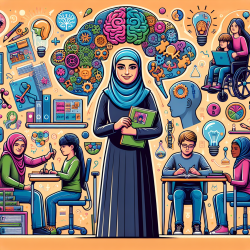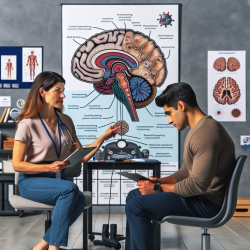Enhancing Neuropsychological Care for Students with Spina Bifida

Understanding and addressing the neuropsychological needs of students with Spina Bifida (SB) is essential for educators and practitioners. The recent publication of the "Neuropsychological care guidelines for people with spina bifida" by Queally et al. provides a comprehensive roadmap for enhancing the care and outcomes of these students. Here are key takeaways and actionable steps for implementing these guidelines in educational settings.
Understanding the Neuropsychological Profile of Spina Bifida
Neuropsychological profiles in individuals with Spina Bifida often display certain patterns of strengths and weaknesses. For instance:
- Strengths: Learning skills relying on associative, rule-based processing such as math fact retrieval and word reading.
- Weaknesses: Tasks requiring construction or integration of information, such as math problem-solving and reading comprehension.
Key Guidelines for Different Age Groups
The guidelines are divided into age-specific recommendations to cater to the developmental needs of individuals with SB.
0-11 Months
- Provide parents with formal teaching on effective parenting practices to foster developmentally appropriate interactions.
- Use infant development scales to assess cognition, language, motor, and social development.
1-2 Years 11 Months
- Monitor and evaluate physical, cognitive, communicative, and social development; refer to early intervention programs as needed.
- Encourage the use of equipment that facilitates object exploration and manipulation.
3-5 Years 11 Months
- Monitor attention and self-regulation skills as they begin to emerge as separate domains.
- Ensure access to high-quality public education with related services to support attention, self-regulation, and social interaction skills.
6-12 Years 11 Months
- Orient health care professionals and educators about the neurological underpinnings of SB and their impact on learning.
- Monitor for academic, attention, and behavioral difficulties, particularly in math and reading comprehension.
13-17 Years 11 Months
- Promote interventions focusing on reading comprehension and math problem-solving.
- Encourage participation in school-related and extracurricular activities to enhance social skills and vocational plans.
18+ Years
- Encourage vocational services addressing job skills and additional education.
- Prepare for the transition to adult care models by building necessary skills for medical care management.
Practical Applications for Educators and Practitioners
To effectively implement these guidelines, consider the following strategies:
- Early Intervention: Start interventions early to support motor, cognitive, and language development.
- Comprehensive Assessments: Utilize neuropsychological assessments to identify strengths and weaknesses and tailor interventions accordingly.
- Parental Involvement: Engage parents in the intervention process to reinforce skills at home.
- Educational Support: Advocate for appropriate educational accommodations and support services.
Encouraging Further Research
While the guidelines provide a robust framework, further research is needed to address unanswered questions, such as the long-term effects of new surgical interventions and the aging brain in individuals with SB. Practitioners are encouraged to stay updated with ongoing research and contribute to the field through their observations and studies.
Conclusion
Implementing the "Neuropsychological care guidelines for people with spina bifida" can significantly improve the educational and developmental outcomes for students with SB. By understanding their unique neuropsychological profiles and applying targeted interventions, educators and practitioners can help these students achieve their full potential.To read the original research paper, please follow this link:
Neuropsychological care guidelines for people with spina bifida.
Citation: Queally, J. T., Barnes, M. A., Castillo, H., Castillo, J., Fletcher, J. M. (2020). Neuropsychological care guidelines for people with spina bifida. Journal of Pediatric Rehabilitation Medicine, 13(4), 663-673. https://doi.org/10.3233/PRM-200761










